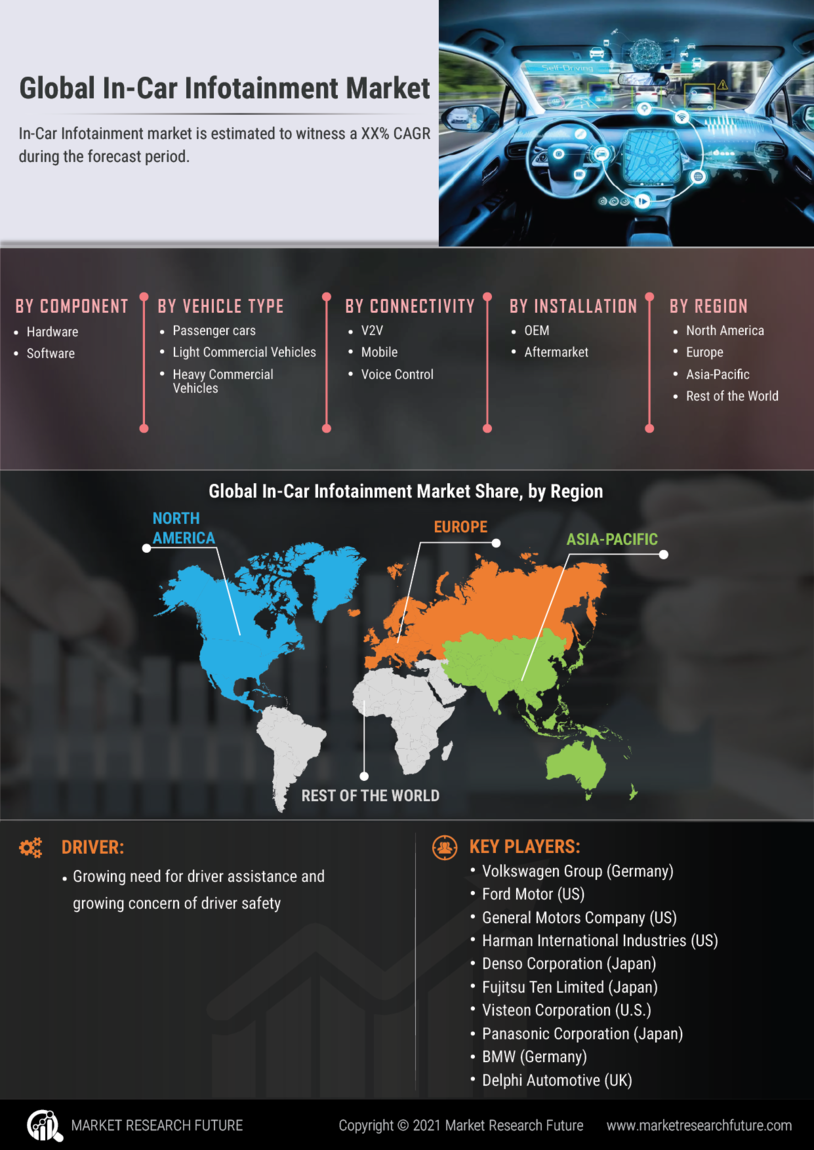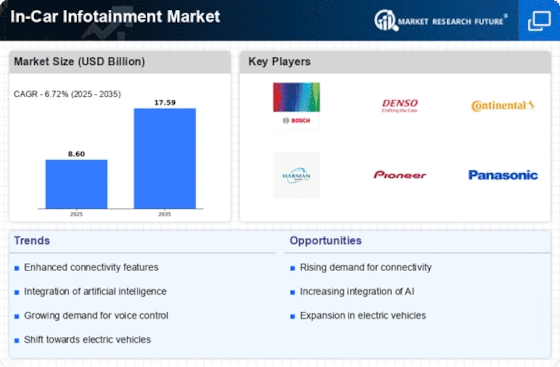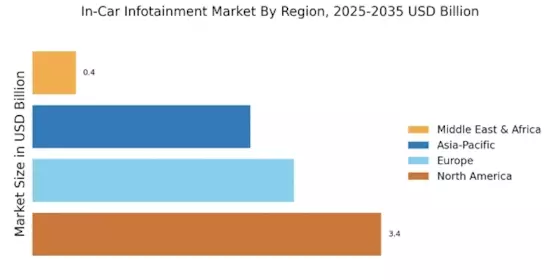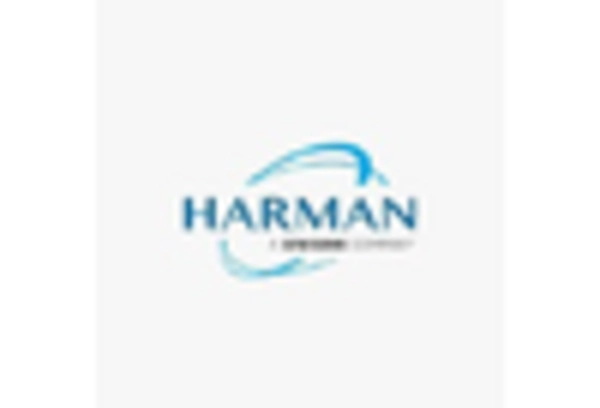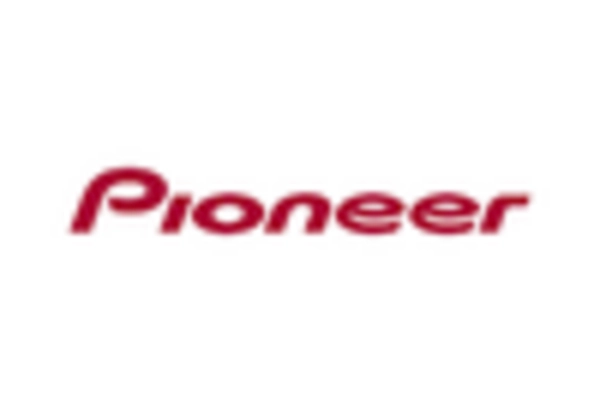Leading market players are investing heavily in research and development in order to expand their product lines, which will help the In-Car infotainment Market, grow even more. Market participants are also undertaking a variety of strategic activities to expand their global footprint, with important market developments including new product launches, contractual agreements, mergers and acquisitions, higher investments, and collaboration with other organizations. To expand and survive in a more competitive and rising market climate, In-Car infotainment industry must offer cost-effective items.
The government and private businesses are making significant investments in R&D for technological advancements in the global In-Car infotainment industry to benefit clients and increase the market sector. In recent years, the In-Car infotainment industry has advantages such as expanding vehicle production and integrating infotainment with additional systems. Major players in the In-Car infotainment Market, including Volkswagen Group, General Motors Company, Denso Corporation, Ford Motor, Harman International Industries, Visteon Corporation, BMW, Fujitsu Ten Limited, Panasonic Corporation, Delphi Automotive, Apple Inc., and others are attempting to increase market demand by investing in research and development operations.
One of the top automakers in the world, the Volkswagen Group, with its headquarters in Wolfsburg, is also the biggest automaker in Europe when it comes to commercial vehicles. The Volkswagen Group is laying the groundwork for the most significant reform process with its "NEW AUTO - Mobility for Generations to Come" Group strategy and future programme. Nine people now make up Volkswagen AG's Board of Management. Oliver Blume, MD, is the company's chairman. Each Board Member is in charge of a single or more Volkswagen Group operations.
At the Volkswagen Group, autonomous, connected driving will fundamentally alter customers' mobility experiences and pave the way for new data-based revenue models.
In June to boost profitability and cash flow, Volkswagen Group focuses on strategy alignment and introduces performance programmes across all brands.
General Motors is an organisation with a global scope and capabilities, with its corporate headquarters in Detroit, Michigan, and employees all over the world. The company serves six continents and employs over 165,000 employees. General Motors supports local economies with more than 92,000 employees and hundreds of millions of dollars in economic activity. Since 2010, GM has invested more than $1 out of every $4 made by American automakers in the country (26%)13. The company delivers 2,274,088 vehicles. The company’s comprehensive strategy for engineering safety via a human perspective is informed by research, technology, and activism.
In June 2023, General Motors expands charging access to the Tesla Supercharger Network and strengthens its commitment to a unified charging standard.
